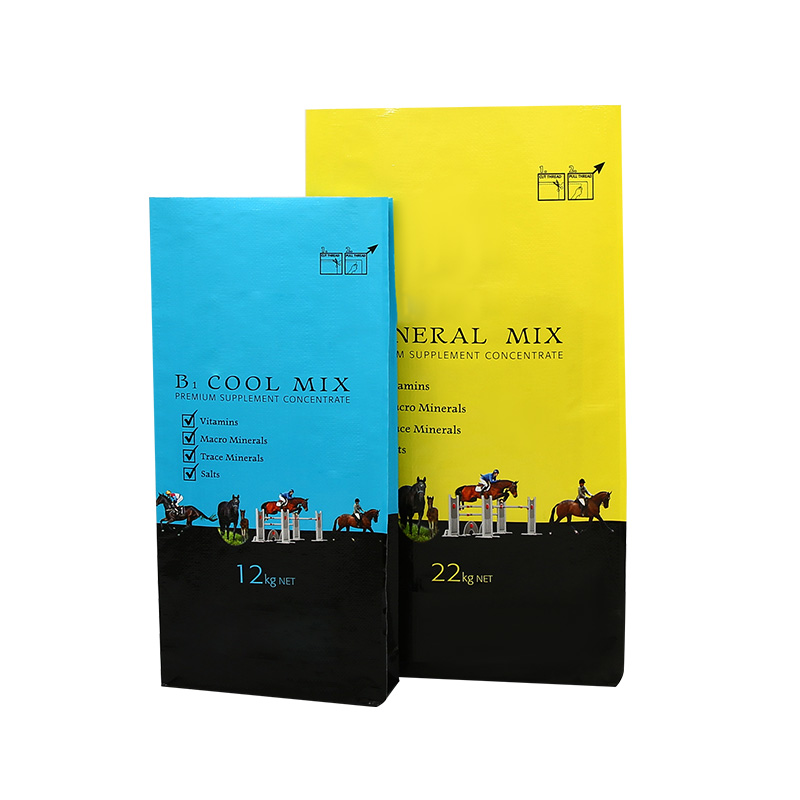Sustainability has become a critical focus in the packaging industry, driven by the increasing awareness of environmental impact and the demand for responsible production practices. Industrial packaging, traditionally dominated by single-use plastics and heavy materials, is undergoing a transformation. Companies are exploring ways to reduce waste, improve recyclability, and create packaging solutions that meet both functional and environmental requirements. Key materials in this transition include large woven polypropylene bags, personalised printed paper bags, and various types of industrial plastic bag solutions.

Large woven polypropylene bags are widely used in industrial applications such as agriculture, construction, and bulk material transport. These bags are valued for their strength, flexibility, and ability to carry heavy loads while maintaining structural integrity. Recent innovations have focused on making these bags more sustainable. Manufacturers are adopting recyclable polypropylene and lessening the use of additives that hinder recycling processes. By improving the lifespan and recyclability of large woven polypropylene bags, industries can reduce their overall environmental footprint while maintaining the durability required for heavy-duty applications.
Alongside polypropylene, paper-based solutions are gaining attention, particularly in applications that benefit from aesthetic appeal and biodegradability. Personalised printed paper bags have found a niche in food packaging, retail, and specialty industrial products. Unlike traditional packaging, these bags can be customized with printing to provide brand visibility and product information, while remaining recyclable or compostable depending on the paper type used. The rise of personalised printed paper bags demonstrates that sustainability and functional design can coexist, offering an alternative to single-use plastics and enhancing customer engagement through visually appealing packaging.
While paper and woven polypropylene are key components of sustainable packaging, the use of industrial plastic bag solutions continues to be important for certain applications. These bags, often made from polyethylene or other recyclable plastics, are designed for strength and protection against moisture, dust, and contamination. Sustainability efforts in this area involve the use of recycled materials, improved manufacturing efficiency, and programs for collecting and reprocessing used bags. By focusing on the entire lifecycle of industrial plastic bag products, companies can balance operational requirements with environmental responsibility.
A crucial aspect of advancing sustainability in industrial packaging lies in reducing resource consumption and waste. Efficient design strategies, such as optimizing bag sizes and shapes, can help lower the amount of raw material required without compromising functionality. Additionally, integrating renewable or recycled materials into production supports circular economy principles, enabling packaging to be reused or repurposed after its initial use. These practices apply to large woven polypropylene bags, personalised printed paper bags, and industrial plastic bag products alike, reinforcing the importance of sustainability across all packaging types.
Collaboration within supply chains is another important factor. Manufacturers, distributors, and end-users must work together to ensure that sustainable packaging initiatives are implemented effectively. For example, consistent standards for recycling or composting can improve the overall efficiency of waste management, while shared knowledge on materials and design can foster innovation. In industrial sectors where large woven polypropylene bags are widely used, collaboration can help establish collection systems that return used bags for recycling, reducing landfill waste and conserving resources.
Consumer awareness also plays a role in driving sustainable packaging solutions. Industrial clients increasingly request environmentally conscious products, encouraging manufacturers to explore alternatives to traditional materials. The demand for personalised printed paper bags, in particular, reflects an interest in packaging that combines sustainability with branding and functionality. Industrial plastic bag solutions are similarly evolving, with recycled or biodegradable options becoming more common as companies respond to market pressures and regulatory guidelines.
Advancing sustainability in industrial packaging requires a multifaceted approach. The adoption of materials like large woven polypropylene bags, personalised printed paper bags, and environmentally responsible industrial plastic bag products demonstrates that functional requirements can be met while reducing environmental impact. Through careful material selection, efficient design, and collaboration across the supply chain, industries can move toward more sustainable practices that benefit both businesses and the planet. As the packaging sector continues to evolve, the integration of sustainable solutions will remain a defining feature of modern industrial operations.


 English
English Español
Español عربى
عربى
